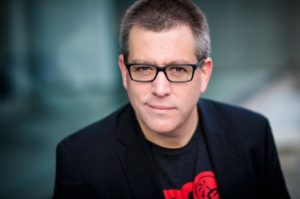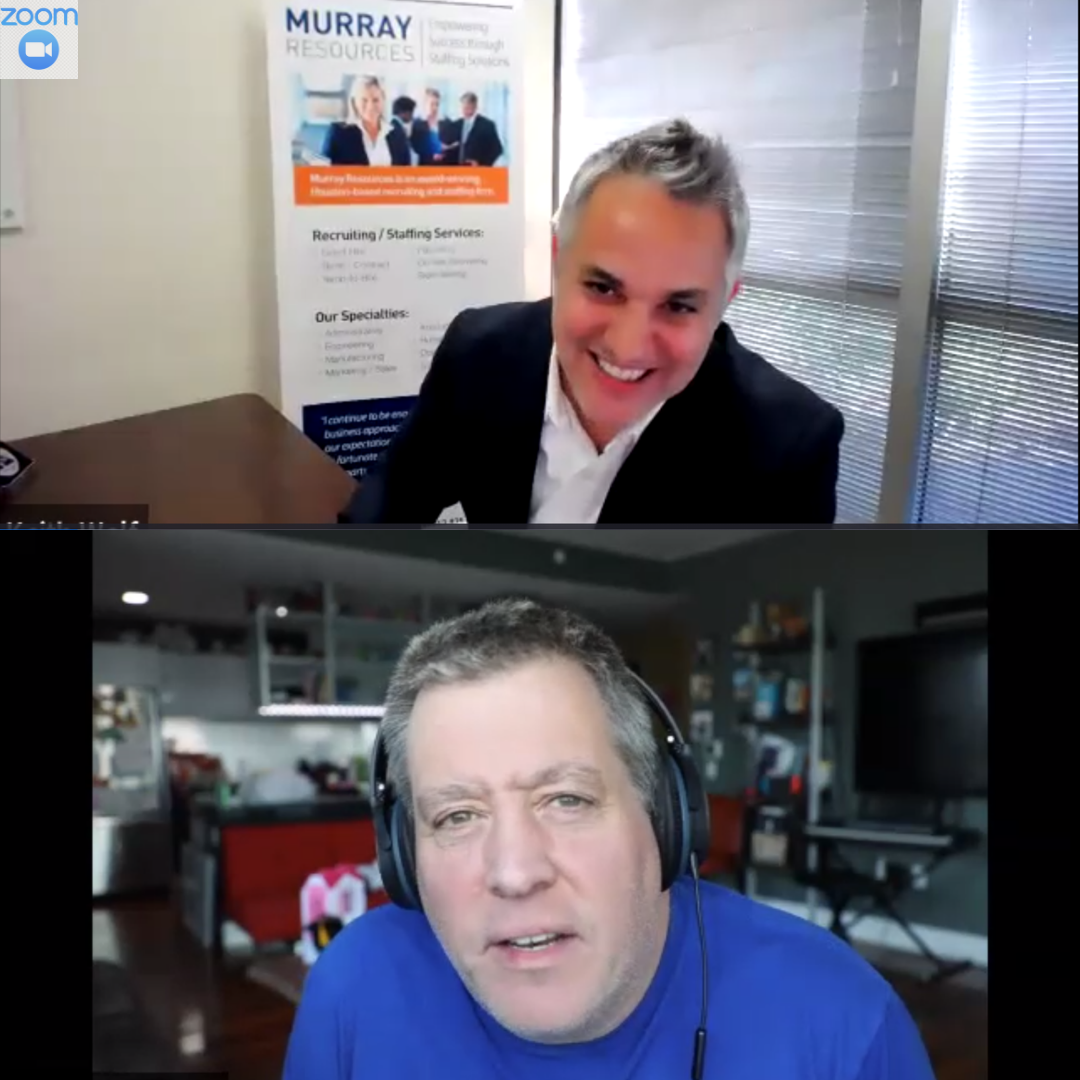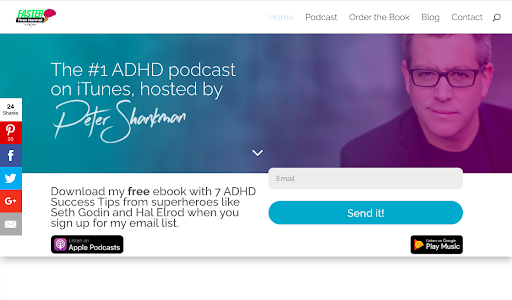4 Key Business Lessons from Entrepreneur and Best-Selling Author Peter Shankman
July 22, 2021

Business Lessons from Peter Shankman
Are you thinking about starting your own business? Or are you considering making changes in your career?
Peter Shankman has unique tips and lessons to share from his entrepreneurial experience over the years — business lessons that you can apply to your own journey.
Shankman isn’t your average entrepreneur. He founded and sold Help A Reporter Out (HARO), a website that connects journalists with sources. He’s also led two other startup launches and exits and runs the Internet’s #1 podcast on ADHD, “Faster than Normal.”
In addition, Shankman is a keynote speaker, best-selling author, and media/PR consultant. His client roster includes companies like Disney, NASA, Sprint, and American Express. Shankman is referred to by the New York Times as “a rock star who knows everything about social media and then some.”
In his “spare time”, Peter is a 2x ironman triathlete, licensed skydiver, and a serious Peloton enthusiast.
We recently had the opportunity to interview Peter Shankman to get his insights on starting a business and building a successful career. Here are four business lessons from our conversation.
(You can watch the full interview here)

1. There’s no perfect time to go after what you want
There’s never a perfect time to start a business, according to Shankman.
“If you keep waiting for the right time, it’s never going to happen,” he says. “I had a trainer who once told me that if you wait for your body to be ready to go exercise in the morning, you’ll never do it. The mind has to explain to the body that it’s ready.”
When it comes to starting a business, just go out and do it, says Shankman. If it succeeds, awesome. If it fails, at least you tried. It’s as simple as that.
Shankman adds that starting a company won’t be right for everyone. For some people, a 9-5 job is fulfilling and there’s absolutely nothing wrong with that.
“But I will say if you’re unhappy, and the only reason is that you’re afraid of what might happen, consider taking the leap,” he says.
2. Avoid destination addiction
Destination addiction is the premise that you’ll be happy when you get to that next thing, according to Shankman.
Here’s how destination addiction works: maybe you believe you’ll be happy when you drop 20 pounds, or you’ll be happy when you find that perfect person.
“If you’re constantly looking for that next thing to fulfill you, you’re never going to be happy,” he says. “Happiness comes from living right.”
Shankman emphasizes that you should go after what you want. For example, if you want to get a better job, improve yourself and go after it. If you want to try entrepreneurship, try entrepreneurship. But you shouldn’t rely on “the next best thing” to help you achieve contentment.
3. Embrace authenticity and use your gifts to your advantage
Shankman has always been open about his experience with ADHD and how he’s embraced it during his business journey. His message? ADHD is a gift, not a curse.
But his positive approach didn’t happen overnight. In fact, Shankman didn’t even know he had ADHD until later on in life. “When I was a kid in the seventies and eighties and going to high school in New York City, ADHD wasn’t a thing,” says Shankman. “Growing up, I was the weirdo.”
According to Shankman, he was the class clown, always telling jokes and talking during class. Although he didn’t discover this fact until later, jokes gave his brain dopamine, and the dopamine actually allowed him to focus and learn.
With ADHD, you’re constantly looking around for something exciting to give you energy. “I could never understand why I couldn’t just shut up and keep quiet in class. It wasn’t until my mid-thirties that I was diagnosed with ADHD,” Shankman explains.

Shankman’s #1 ADHD podcast, “Faster than Normal.”
Upon this diagnosis, everything in his life suddenly made sense; why his brain ran at the speed of light or why he could start companies on a dime, but couldn’t commit to dinner.
Instead of shying away from the topic, Shankman has been very public about his experience with ADHD – and how others can learn from it.
Shankman has also harnessed the power of ADHD to approach business in unique ways. For example, he loves writing. Because his ADHD allows him to write like he talks, his books are conversational and speak directly to the reader.
“If I lived in a way that the masses consider normal, I’d be a very boring person. I live my life in a way that works for me. And a lot of people seem to like that,” he says.
In short, be yourself. People are drawn to authenticity and it can help build your personal and professional brand.
4. Prioritize – and hack – work-life balance.
Being all-in on work at the expense of one’s home life or health can quickly lead to burnout. Maintaining a true work-life balance is essential from Shankman’s experience.
“I balance my work and life and take time off as needed. For example, I might fly 14 hours to Tokyo and give a speech and then take three days off to go skydiving in Thailand,” he says.
Other “hacks” that Shankman uses to ensure he balances work with life includes shutting his phone completely off so he’s not checking it throughout the night.
He also automates things in his life as much as possible through technology. For example, the lights in his apartment start coming on in his bedroom at 3:30 in the morning. They’re pretty much at full power by 3:45-4:00am.
Shankman then rolls out of bed at 4:00am and onto his Peloton bike for spin class.
Even with his busy schedule, Shankman makes time for a healthy lifestyle. He recommends the same for others. “Get at least eight hours of sleep a night,” he says. “Exercise, eat a vegetable (and not the ones on pizza). Take care of yourself.”
Closing business lessons and advice…
At the end of our conversation, Shankman shared the best piece of advice he’s been given for his career.
“If you’re unhappy, change something. If you can’t change it, nothing you can do,” he says. “Don’t worry about it either way.”
He also adds: “If you can’t change the people around you, change the people around you. Life’s too short to spend it on people who don’t understand you.”
For more business lessons and advice (and hacks) from Peter, check out the webinar and my full interview with Peter Shankman here.
You can also connect with Peter on LinkedIn here.
Interested in past/future webinars? Click here to view our entire library of past webinar recordings and to sign up to receive email notifications about future webinars.
